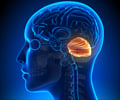Sertraline Medication Information
Get detailed information on Sertraline, including pronunciation, uses, dosage guidelines, indications, and instructions on how and when to take it and when to avoid it.
The updated prescription information on Sertraline provides an overview of possible side effects, precautions, warnings, and storage tips.
You'll also find brand names used in india and internationally, along with pricing details. For further clarification, consult your healthcare provider.
Generic Name : Sertraline Pronunciation : ser' tra leen ICD Code : Y49.2 Therapeutic Classification : PsychotherapeuticsTrade Names/Brand Names of Sertraline
India :
Inosert |
Depsert |
Nexlpra -S |
Sertee (100 mg) |
Relax -S |
Zert OD (50 mg) |
Sertaj |
Serjet (50mg) |
Sertamax |
Serlift
International :
Zoloft .
Why is Sertraline Prescribed? (Indications)
This medication is an antidepressant of the selective serotonin reuptake inhibitor (SSRI) class, prescribed for major depression, obsessive-compulsive disorder, panic attacks, and social anxiety disorder. It increases the amounts of serotonin, a natural substance in the brain that helps maintain mental balance.When should Sertraline not be taken? (Contraindications)
Contraindicated in patients are taking or have taken linezolid, methylene blue, a monoamine oxidase inhibitor (MAOI), selegiline, or St. John's wort within the last 14 days, and hypersensitivity.What is the dosage of Sertraline?
PO- The dose in depression and obsessive- compulsive syndrome is 50mg/day, which can be increased as per requirement to up to 200 mg/day. The recommended dose in children is 25 mg/day.How should Sertraline be taken?
This medication available in the form of tablet and a concentrate liquid to be taken by mouth, with or without food.What are the warnings and precautions for Sertraline?
•Caution should be exercised in patients with history of hypomania and seizure disorders, liver or kidney damage, heart disease, recent heart attack, bleeding disorders, diabetes and angle-closure glaucoma.• Discontinue treatment if seizures develop or if there is an increase in seizure frequency.
• Monitor for signs of clinical worsening, suicidality and unusual changes in behavior especially during the initial treatment period or when there are dosage adjustments.
♦Patient may develop with increased risk of Serotonin Syndrome with the following symptoms: restlessness, diarrhea, fast heart beat, incoordination, nausea, vomiting. If it is so consult with your healthcare provider.
What are the side effects of Sertraline?
Heart- Palpitations, chest pain; increased coagulation times, slow heart beat, AV block, abnormal heart rhythms, QT-interval prolongation, fast heart beat.Central Nervous System-Headache, sleep disorder, drowsiness, dizziness, fatigue, general discomfort, tremor, increased libido, agitation, nervousness, anxiety, aggressive reaction, hyperactivity, tingling, weakness.
Skin- Sweating, rash, photosensitivity, inflammatory destruction of blood vessels.
Eye and ENT-Abnormal vision, tinnitus, blindness, cataract, inflammation of the optic nerve.
Gastrointestinal-Nausea, diarrhea, dry mouth, upset stomach, abdominal pain, loss of appetite, constipation, vomiting, increased appetite, inflammation of pancreas.
Genitourinary- Abnormal ejaculation, sexual dysfunction, urinary incontinence, impotence, potentially harmful, acute renal failure.
Blood- Purple or discolorations on the skin, lowered white blood cell count, blood disorder, lupus-like syndrome, reduction in the number of red cells, serum sickness, decrease in platelets.
Liver- Elevated liver enzymes, increased bilirubin, liver enlargement, jaundice, liver failure.
Metabolic- Increased weight, high blood sugar, low thyroid level.
Respiratory- Nose bleed, inflammation of sinus, runny nose.
Miscellaneous- Pain, fever, pain, weight loss; back pain, muscle pain, yawning, anaphylaxis.


























